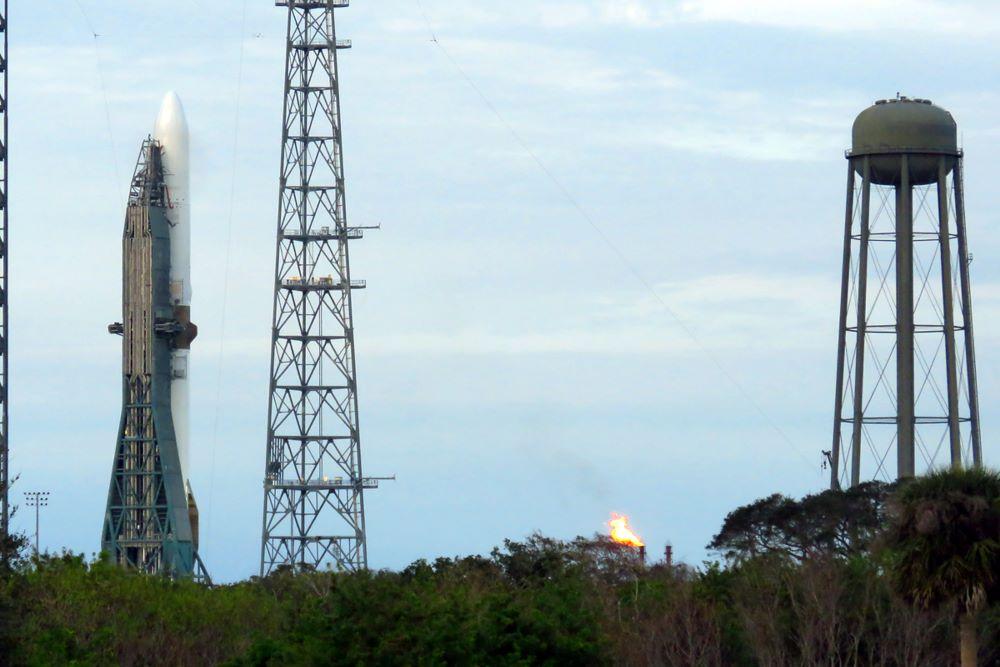This article is published in Aerospace Daily & Defense Report part of Aviation Week Intelligence Network (AWIN), and is complimentary through Jan 22, 2025. For information on becoming an AWIN Member to access more content like this, click here.

CAPE CANAVERAL—Privately owned Blue Origin plans to try again on Jan. 16 to launch its first orbital rocket on a 6-hr. demonstration mission that includes an attempt to return and land the first-stage booster on a barge in the Atlantic Ocean.
After waiting out high seas downrange of its Cape Canaveral SFS launch site, Blue Origin fueled the two-stage rocket late Jan. 12, aiming for a liftoff between 1-4 a.m. EST Jan. 13. The launch team reached deep into the 3-hr. launch period before scrubbing for the day.
More than 15 hr. later, Blue Origin said the scrub was due to ice forming in a purge line on an auxiliary power unit that powers some hydraulic systems. The company initially scheduled another launch attempt for Jan. 14, but canceled that as well without comment, though weather predictions for launch were unfavorable.
The launch window, set to maximize launch opportunities while abiding by FAA airspace restrictions, remains the same 1-4 a.m. for the Jan. 16 attempt.
For its inaugural run, Blue Origin aims to put the New Glenn upper stage and attached demonstration payload into a highly elliptical orbit ranging from 1,500-12,000 mi. above Earth and inclined 30 deg. relative to the equator.
The upper stage is powered by a pair of liquid hydrogen-fueled BE-3U engines, a vacuum-optimized version of the engine on Blue Origin’s New Shepard suborbital booster, which debuted in 2015.
During 6 hr. of flight, Blue Origin plans to test technologies for upcoming missions of the company’s in-space services and hosting platform known as Blue Ring. The pathfinder is intended to validate space-to-ground communications and tracking navigation for future operational Blue Ring spacecraft.
Although New Glenn has not yet flown, the methane-fueled BE-4 engines that power its first stage do have flight history. United Launch Alliance, which uses a pair of BE-4s on its Vulcan rockets, launched twice in 2024, both times successfully.
New Glenn clusters seven BE-4s on its first stage, which unlike Vulcan is designed to be reused. The riskiest part of NG-1 is the BE-4 engine restart for the return to Earth and touchdown, Blue Origin owner Jeff Bezos said during an interview ahead of the first launch attempt.





